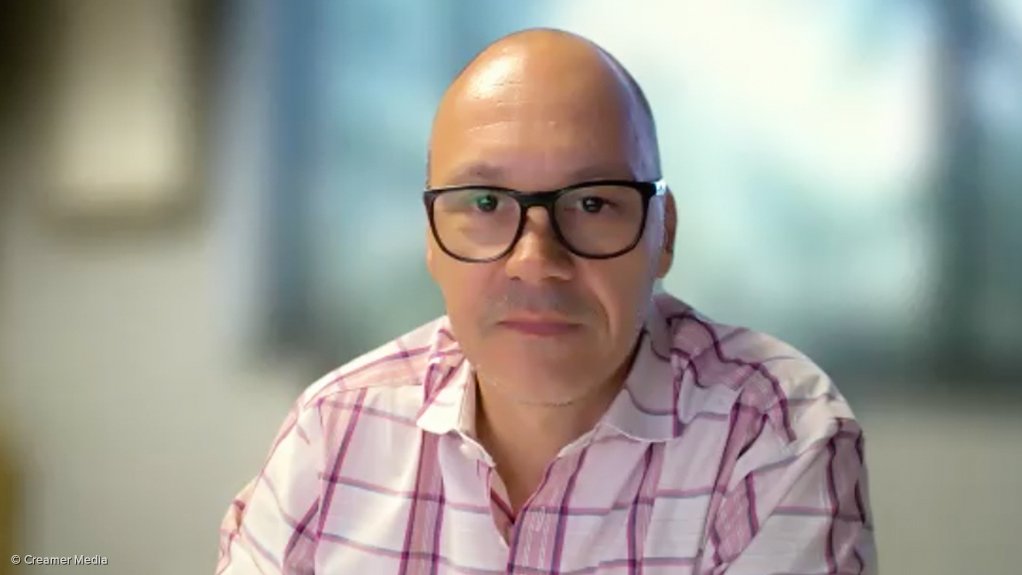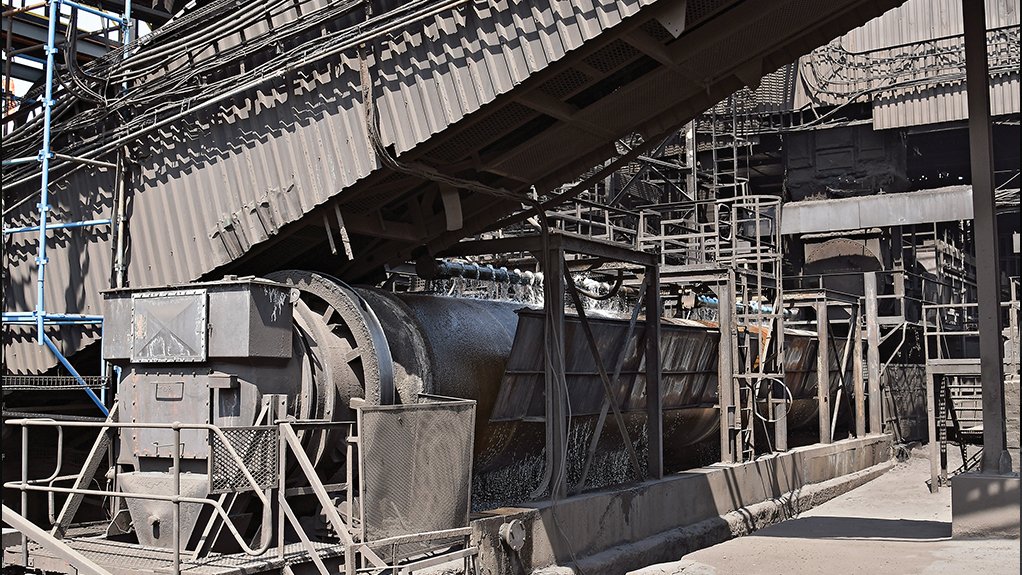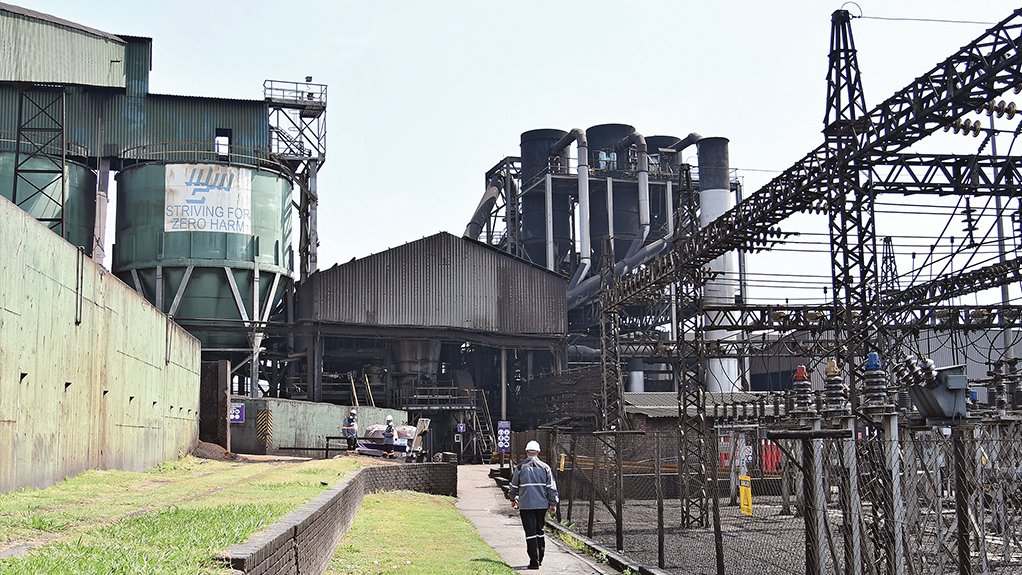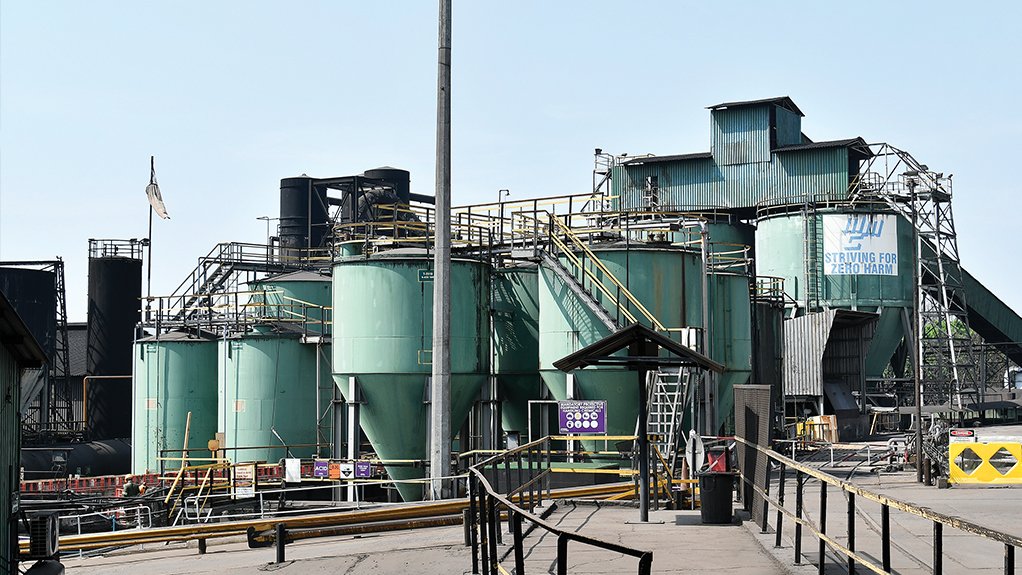JOHANNESBURG (miningweekly.com) – Proudly South African Manganese Metal Co (MMC) of Mbombela, Mpumalanga, is making a fantastic first-mover advance to enter the manganese battery metal market, which is progressing super-fast.
To be established is a faster stream to market, which is not only ahead of the global game, but also provides time for this remarkable value-adding company to become a manganese-ore-to-sulphate producer from its current position of being the producer of the world’s purest 99.9% pure manganese metal from manganese fines.
“From Mbombela, this is a phenomenal exponential expansion - the South African story taking a big step forward,” MMC chairperson Bernard Swanepoel explained to Mining Weekly in a Zoom interview in which MMC CEO Louis Nel provided detailed insight. (Also watch attached Creamer Media video.)
MMC has taken the decision to enter the electric vehicle (EV) battery market to meet the urgent needs of some of its customers, who are already taking their own steps to do so by dissolving MMC’s fantastically pure manganese metal into manganese sulphate themselves.
MMC is now not only following some of its customers, but is also becoming a supplier to new entrants.
MMC has been in discussions with South Africa’s Industrial Development Corporation for some time about funding an ore-to-sulphate project, on which R540-million will be spent in Mbombela as soon as the details have been finalised.
“That process, unfortunately, is a three-year to five-year process and it will continue. It is the long term future of South African manganese ore into the battery space. We are ideally situated.
“However, just as China did not wait for the world and America and Europe are not waiting for South Africa, the battery space is developing super-fast. We do not have to back a technology or a combination of minerals. We will be supplying manganese in the shape and form that the precursor manufacturers want it to these manufacturers as soon as possible.
“For us to do that, we have to dissolve some of our current metal, which is already 99.9% pure, and then, in order to ship it to where it’s needed, we recrystallise it and we ship manganese sulphate," Swanepoel explained.
With the crystalliser, MMC is leapfrogging over its own ore-to-sulphate project.
"We've broken soil for the crystalliser and we're busy preparing the site for the crystalliser in the same location where it would have been for the ore-to sulphate project,” said Nel.
“We do need to make a little bit of extra land available. We are fortunate that we've got that at our disposal. In essence, our sulphate project stays on the same footprint.
“There's not a very big footprint that we actually need. It is relatively simple and I think that lends itself to the speed of implementation,” Nel added.
Manganese sulphate is the form in which precursor manufacturers want manganese because it is as sulphate that they blend it with lithium, nickel, cobalt, and so on.
“So, for us, this is a further incremental step in our already pure manganese metal, where we are working with metal, and now we convert it into a salt – very simple, proven, we have done the feasibility and as the board in January, we approved R130-million for the first such pipeline," said Swanepoel.
“What we get for that is to convert 2 000 t of metal into 6 000 t of sulphate. but – and this is the fantastic thing for people who are wanting this – it happens in a matter of 18 to 20 months, not five years.
“So, critically, we get the top quality product to the market when the market wants it. Now obviously one could assume that from then on there would be subsequent steps.
“We could see why we would expand from 2 000 t of metal to 8000 t. That means 24 000 t of manganese sulphate, which is quite significant and that buys the end users and us the time for our manganese ore-to-sulphate project to also come on stream. This is an additional faster stream to market,” Swanepoel explained.
Manganese is a key component. It brings strength and is relatively cheap when compared with some of the other minerals that go into batteries.
But as much as there is an abundant supply of manganese ore as such, there is absolutely limited capacity to make pure manganese metal, which MMC has been doing for half a century.
Outside of China, it is only MMC.
While continuing to provide its traditional offering to export markets, MMC will now also be using its pure manganese metal to produce manganese sulphate for batteries, ahead of launching a manganese ore-to-sulphate project.
For 50 years, MMC, described by South Africa’s Trade & Industrial Policy Strategies organisation as “a South African industrial jewel that could be much bigger than what it is today", has been transporting manganese waste – fines – from the manganese fields of South Africa’s Northern Cape.
It also has well-established logistics to get the manganese metal that it produces from those fines to the ports of Maputo and Durban, and to international markets.
“So, for us, this is not an additional new challenge. There’s a cost associated with it, but that is the cost that every supplier in the world faces. We mine where the orebodies are, we beneficiate where there’s a competitive advantage, and we need to supply the product in the shape and form that the users want it, where they want it.
“We certainly think in time, some of our facilities may be offshore, but right now, from Mbombela, this is a phenomenal exponential expansion – the South African story taking a big step forward,” Swanepoel highlighted.
EMAIL THIS ARTICLE SAVE THIS ARTICLE ARTICLE ENQUIRY
To subscribe email subscriptions@creamermedia.co.za or click here
To advertise email advertising@creamermedia.co.za or click here


















